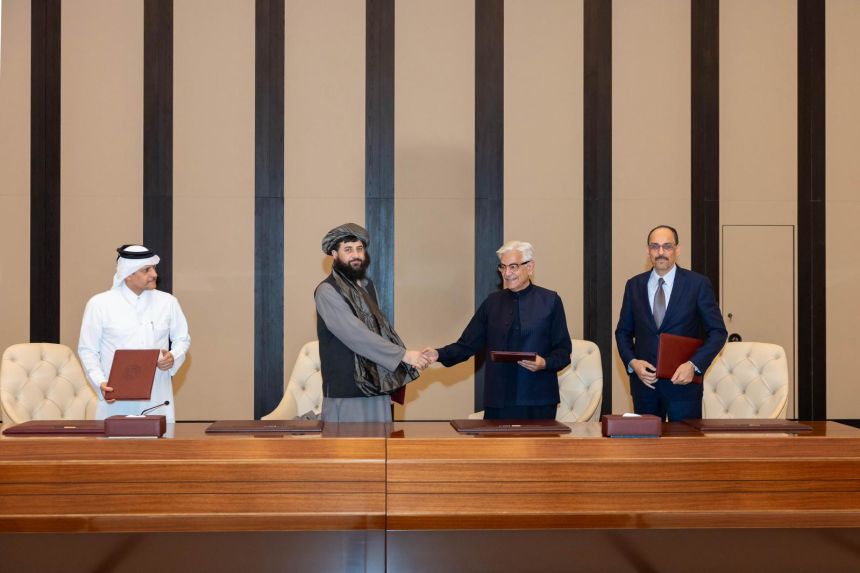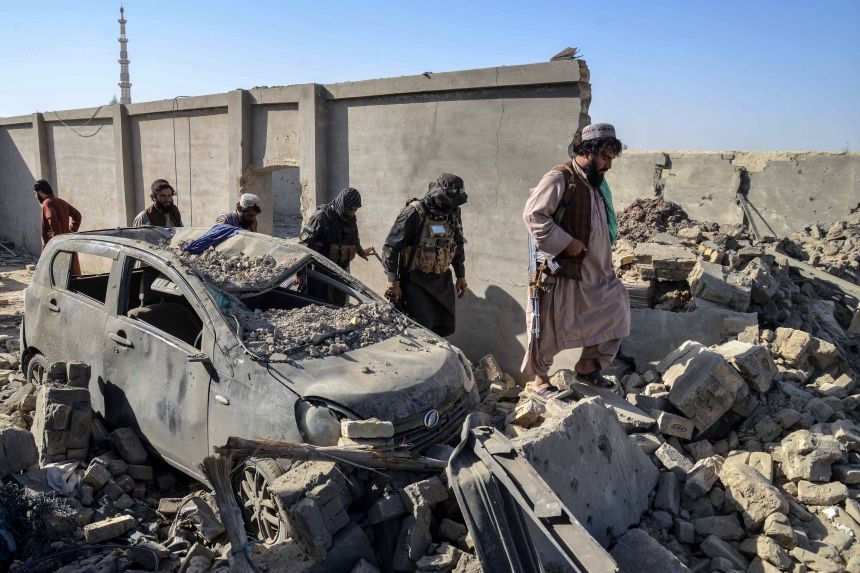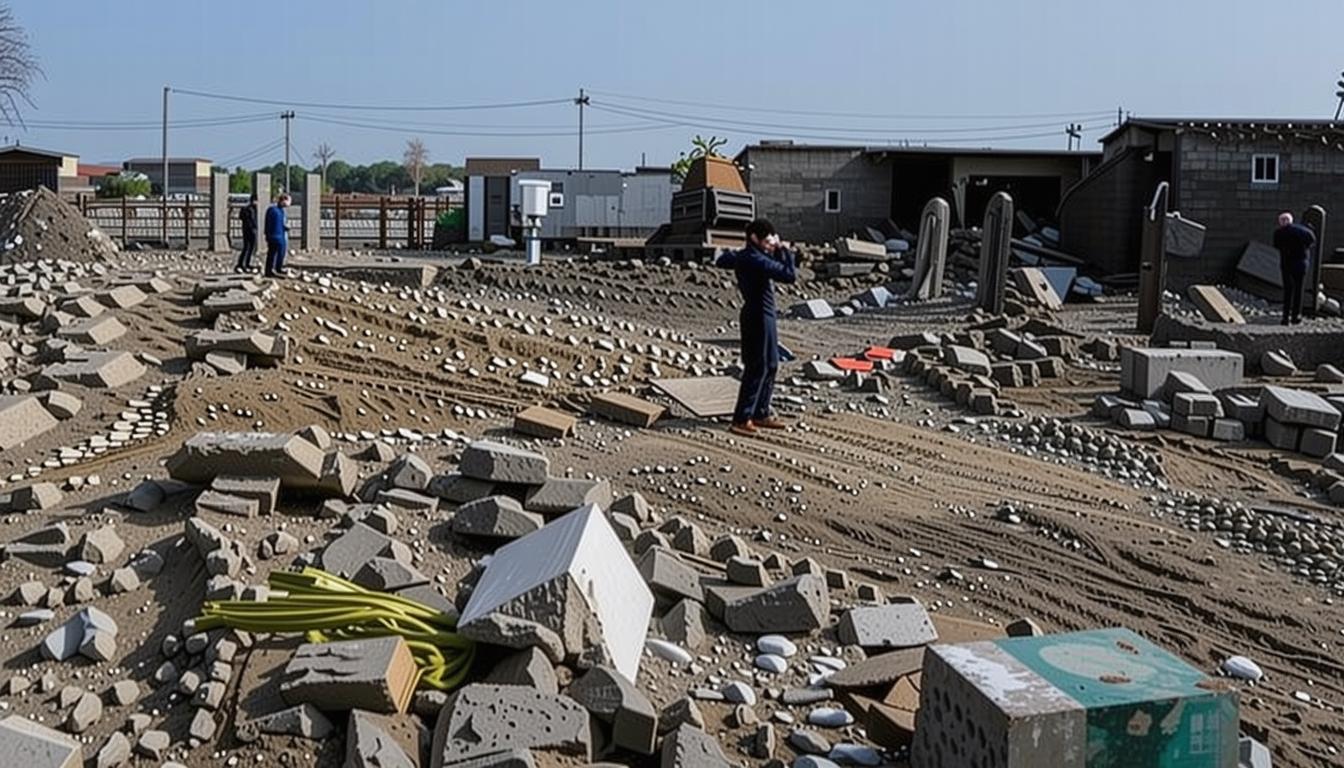New Ceasefire Agreement Between Pakistan and Afghanistan
In a significant development, Pakistan and Afghanistan have reached a fresh ceasefire agreement during discussions in Doha, as announced by Qatar’s foreign ministry on Sunday. This comes after a week of intense conflict that persisted despite previous attempts at peace.
Efforts Towards Lasting Peace
The two nations have committed to halting hostilities and pursuing “enduring peace and stability,” with Qatar and Turkey playing key roles in mediating the talks.
Accusations and Airstrikes
The ceasefire announcement follows accusations from Afghanistan’s Taliban leadership, claiming that Pakistan conducted airstrikes on Afghan soil. This marks the most severe conflict between the countries since the Taliban’s resurgence in Kabul in 2021.
Future Dialogues Planned
Both Islamabad and Kabul have agreed to continue discussions in the coming days to ensure the ceasefire’s durability and effective implementation.
Border Tensions and Retaliation
Tensions flared along the disputed 1,600-mile border on October 10, following Afghanistan’s allegations of Pakistani airstrikes in Kabul, which led to retaliatory actions. Pakistan has long accused Afghanistan of sheltering the Pakistani Taliban, a claim denied by the Afghan Taliban.
Ceasefire Challenges
A 48-hour ceasefire was initially agreed upon last Wednesday after days of violence that resulted in numerous casualties. Although extended on Friday, clashes continued despite mediation efforts.
High-Level Delegations and Accusations
Ahead of Saturday’s talks, Afghanistan’s defense minister led a high-level delegation to Doha, accusing Pakistan of targeting civilian areas in Paktika province with airstrikes.
Afghanistan’s Stance
Afghanistan has reserved the right to respond to these alleged violations but has instructed its forces to refrain from new military actions to uphold the integrity of its negotiating team, according to spokesman Zabiullah Mujahid.

Pakistan’s Response
Pakistan’s information minister stated that their security forces targeted “verified” militant camps along the border, denying any attacks on Afghan civilians.
Claims of Civilian Targeting
Attaullah Tarar dismissed claims of civilian targeting as false, suggesting they were attempts to garner support for terrorist groups within Afghanistan.
Militant Attacks During Ceasefire
Tarar reported that militants attempted attacks on Pakistan during the ceasefire, which were repelled, resulting in over 100 militant casualties. These figures remain unverified.
Tragic Incident in Paktika
The Afghanistan Cricket Board reported that a Pakistani attack in Paktika killed eight people, including three cricket players, during a gathering after a friendly match.
Impact on Sports Relations
Expressing profound sorrow, the board announced Afghanistan’s withdrawal from an upcoming T20I cricket tournament involving Pakistan and Sri Lanka.
Escalating Tensions
The recent clashes represent the deadliest escalation since the US withdrawal from Afghanistan in 2021, potentially ushering in a new era of instability between the once-amicable neighbors.
Historical Context
Pakistan was a key supporter of the Taliban following its ousting by NATO forces in 2001 and during its insurgency against the US-backed Afghan government.

Rising Threats from TTP
The Tehrik-i-Taliban Pakistan (TTP) has re-emerged as a significant threat to Pakistan’s national security, with 600 attacks on Pakistani forces over the past year, according to the Armed Conflict Location & Event Data (ACLED).
Civilian Casualties
Since the onset of recent hostilities, at least 36 civilians have been killed and hundreds injured in Afghanistan, as reported by the United Nations Assistance Mission in Afghanistan (UNAMA).
